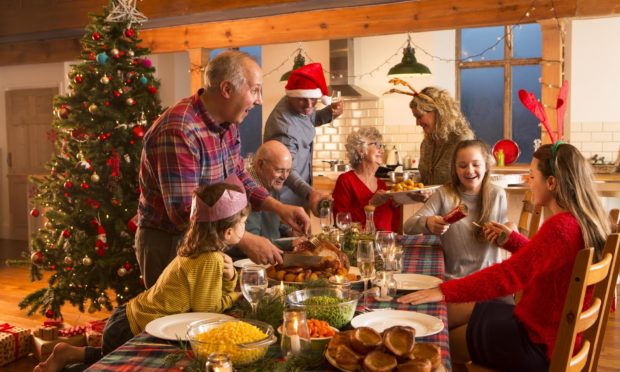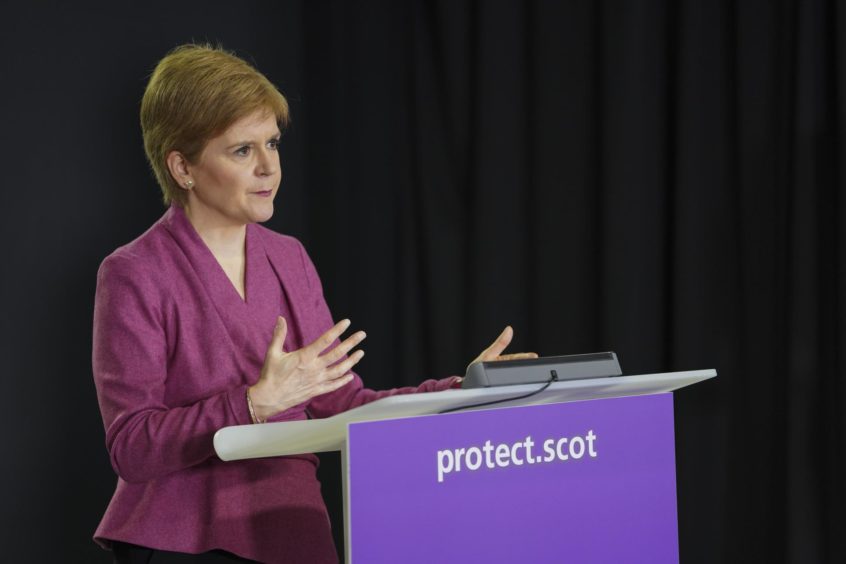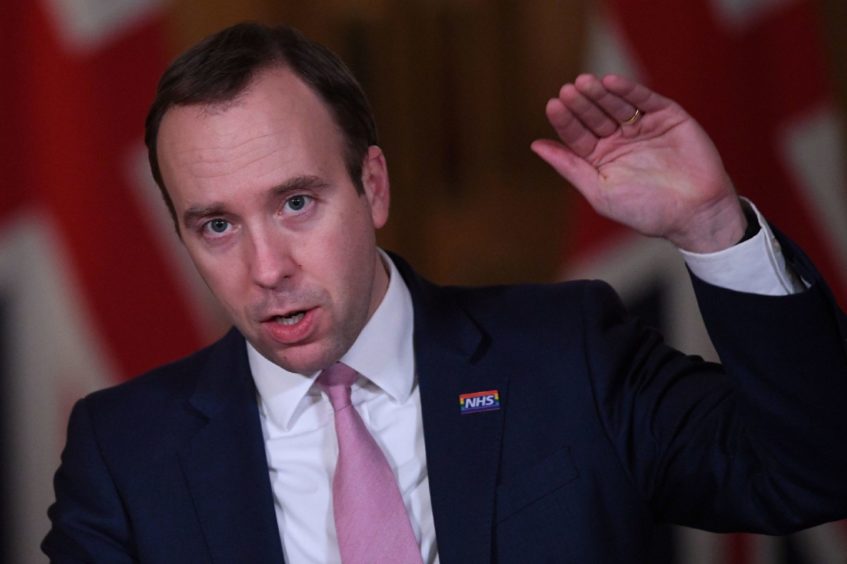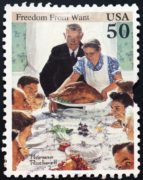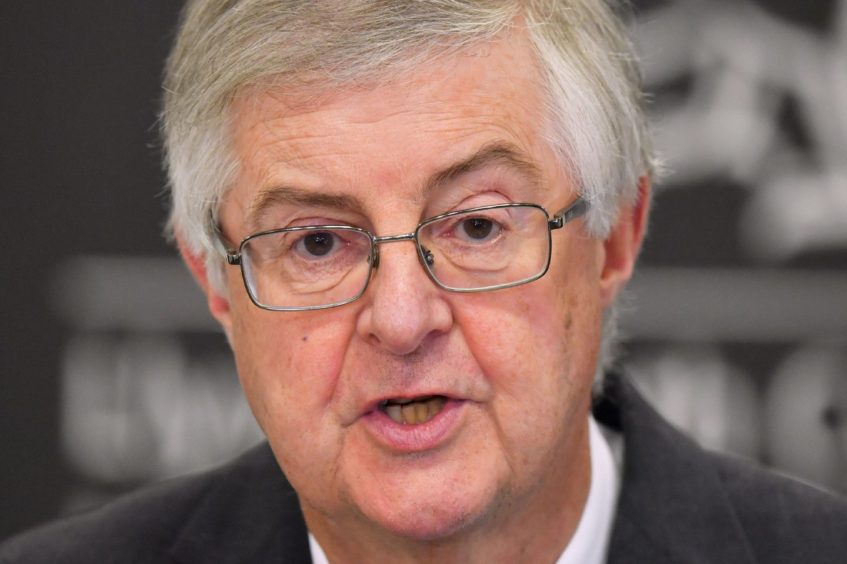There is always a chance Christmas will end in an almighty argument, with each member of the family stomping off in their own direction and shouting back that they would much rather do their own thing anyway.
This year it is the UK’s family of nations that risks the biggest falling out as ministers across Scotland, England, Northern Ireland and Wales attempt to reach an agreement on how best to organise the festive season under a Covid cloud.
Officials in each corner of the UK are reportedly considering loosening the rules on household mixing over a five-day period, starting on Christmas Eve, to allow people to travel and spend time with their loved ones as the year draws to a close.
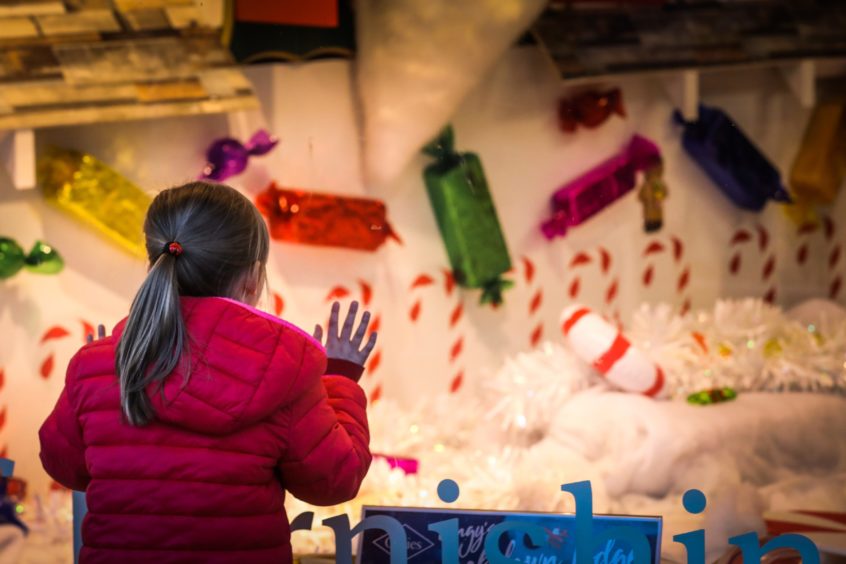
All four nations have noted their preference for reaching an agreement that would apply UK-wide and allow people to visit family members regardless of where they live but it remains unclear whether a final deal will be reached.
Chief medical officers of the four nations have been tasked with developing a “concrete” proposal for household mixing over the festive period, with the details expected to be made public some time next week.
Speaking at her daily coronavirus briefing on Wednesday, Nicola Sturgeon said she was “determined” that people should have the ability to see loved ones at Christmas – including, possibly, those they are unable to see under current restrictions.
At another briefing on Friday, Ms Sturgeon said tougher restrictions imposed across areas of the central belt for a three-week period will hopefully allow measures to be relaxed in time for Christmas.
But she warned lifting restrictions would not come without serious risks, and members of the public will have to “think carefully themselves, even with any relaxation, about what they want to do or not”.
‘We must follow social distancing’
The comments were echoed by the UK’s health secretary, Matt Hancock, who appeared to rule out hugging relatives and friends at Christmas as he warned physical distancing will still need to be respected.
Speaking on Times Radio, Mr Hancock insisted there is a need to “respect the fact that we mustn’t spread the virus further but also respect the fact that Christmas is a special time where people get together, especially with their families”.
He said: “What we want to have is a set of rules that is, if at all possible, consistent across the four nations of the UK, not least because so many people travel to see their family at Christmas time, but also respects the fact that we must follow social distancing to keep the virus under control.”
Dismissing the idea that it should be up to families to decide their own rules for Christmas, Mr Hancock later told BBC Radio 4’s Today programme that people may pass the virus on without knowing it.
But he added: “Christmas is a special time of year and we’ve had such a difficult year in 2020 – it has been such a terrible year and having some hope, some joy at Christmas, I know that would be welcomed by so many people.”
Welsh first minister Mark Drakeford said that further discussions with UK Cabinet Office minister Michael Gove and the other first ministers of the devolved administrations were planned to take place next week.
He said: “We agreed some broad parameters on Wednesday and remitted officials of all four administrations to work now on the detail, so I remain hopeful that it will be possible to reach a four-nation approach to Christmas.
“I certainly think that is the right thing to do – if it is achievable – and certainly Wales will be at the table next week, looking to find an agreement.”
Health experts have expressed doubts
The UK Government’s medical adviser on Covid-19, Susan Hopkins, has said it is working on a plan to make Christmas “as close to normal as possible”.
Dr Hopkins, from Public Health England, told a Downing Street briefing that restrictions could be necessary either side of Christmas and that for every day measures are relaxed, five days of tougher controls would be needed.
Professor Stephen Reicher, an expert in social psychology at St Andrews University and an adviser to both the UK and Scottish governments, believes an informal contract with the public, where more household mixing is allowed but with a greater focus on hygiene and safety in the home, could increase compliance over Christmas and reduce overall contact and transmission.
But Sir David Spiegelhalter, statistician at the University of Cambridge, told Today he fears mixing at Christmas could lead to “tens of thousands” more Covid cases, requiring an extra clampdown in the New Year.
He said: “It is quite plausible that a few days of relaxing would lead to tens of thousands of more cases, and that means extra deaths and measures needed to bring those under control.”
